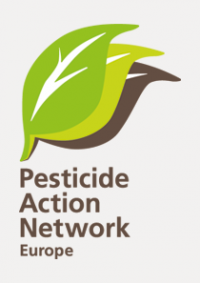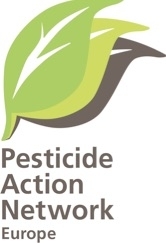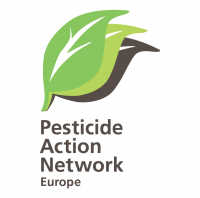Reports
Pesticides in our bedroom
Intensive agriculture being th edominant model of food production in the EU, citizens living in rural areas are regularly exposed to pesticides. Numerous epidemiological studies indicate that residing in close proximity to intensively farmed land is associated with an increased risk of cancers, miscarriages and birth malformations, cognitiveimpairment, etc. In addition, residents who live closer to pesticide-treated land have shown higher levelsof DNA damage, oxidativestress, and decreased cholinesterasea ctivity.
EFSA : Science or ideology? EFSA’s happy genotox marriage with industry-funded ILSI
PAN Europe's latest report, published on World Food Safety Day, shows that the controversial EU food safety agency (EFSA) ignored positive cancer risk test results to clear the use of 12 unstable pesticides that are now widely used in Europe. The report demonstrates that the approvals are unreliable and the pesticides are not proven safe. The substances could help explain rising rates of breast and prostate cancer in Europe.
Using the CAP to turn the IPM triangle on to its solid base
With this report PAN Europe wants to show that the necessary changes to our agricultural system can be done now through an holistic uptake of Integrated Pest Management (IPM). However, as this report shows, the spending of Member States is currently going in the wrong direction : instead of supporting an holistic approach of IPM and the transition towards non-chemical, agroecological practices that work in harmony with nature, they offer CAP subsidies to practices that are not applied in a coherent and integrated approach.
Biomonitoring of pesticides in hair: How veterinary drugs contaminate human hair
EMA opens the gates to hazardous pesticides
Brussels, Utrecht, 30 March 2021 - Forty-seven pesticides were detected in human hair samples taken from 21 volunteers in the Netherlands. The findings of our new report [LINK] mainly concerned harmful insecticides that are banned in agriculture such as Fipronil, Permethrin and DEET, but still authorised for treatment of pets against fleas and ticks or authorised as a biocide. These veterinary chemicals and biocides are the most likely source of hair contamination.
Consumer Guide 2021: Endocrine Disrupting Pesticides in Your Food
Consumers are advised to avoid exposure to endocrine disrupting pesticides (EDPs), which can be found as pesticide residues in conventionally-grown fruit and vegetables. Due to their harmful effects on human health, the EU banned EDPs twelve years ago. However, they are still abundantly present in food and other items sold in (super)markets.
Member States against EU pesticide reduction
An access to documents request carried out by PAN Europe showed that, behind closed doors, Member States are revealing their real positions on the EU Green Deal: Only one Member State is willing to engage in the 50% pesticide reduction target (as proposed by the European Commission, but measured in a completely inappropriate way).
Find out more in the report
Banned and Hazardous Pesticides in European Food
PAN Europe carried out an investigation to find out whether pesticides banned in the EU [according to 1107/2009 and PIC legislation1] are detected in food sold on the EU market, using the EU official food pesticide residue monitoring data.
Highlights:
REFIT of the Pesticide (EC 1107/2009) & Maximum Residue Limits in food (EC 396/2005) Regulations: PAN Europe's observations
The REFIT evaluation is a big disappointment. Commission claims that the pesticide Regulation has been effective to fulfil its goals “to a large extend”. However, no evidence is provided to assess whether the purpose of the Regulation to ensure a high level of protection of both human and animal health and the environment has been fulfilled. The claim is unsubstantiated [see point 1, ‘Pesticide policy- effective?’].
Mapping good agronomic practices and alternatives to pesticides in Europe - a presentation by PAN Europe and IBMA
Integrated Pest Management means moving away from killing towards managing pest populations. Integrated Pest Management (IPM), if applied correctly, is a sustainable way to protect crops based on applying good agronomic practices to enhance plant resilience, the forecasting and monitoring of pest population development and the use of mechanical as well as biological alternatives to synthetic pesticides. Synthetic pesticides are then only used as a last resort in pest control.
Identification of endocrine disrupting pesticides: Trapped in a vicious circle
The current EU policy to test if a pesticide is an endocrine disruptor (altering the function of human and animal hormonal system) is far from being implemented. Endocrine disruption is a serious health concern that could lead to reproductive effects, cancer, brain damage and a range of other diseases. PAN Europe’s survey on the approval decisions of 33 pesticide active substances in Europe revealed that in 31 cases no relevant testing -specific to assess endocrine disruption- was requested from industry.


